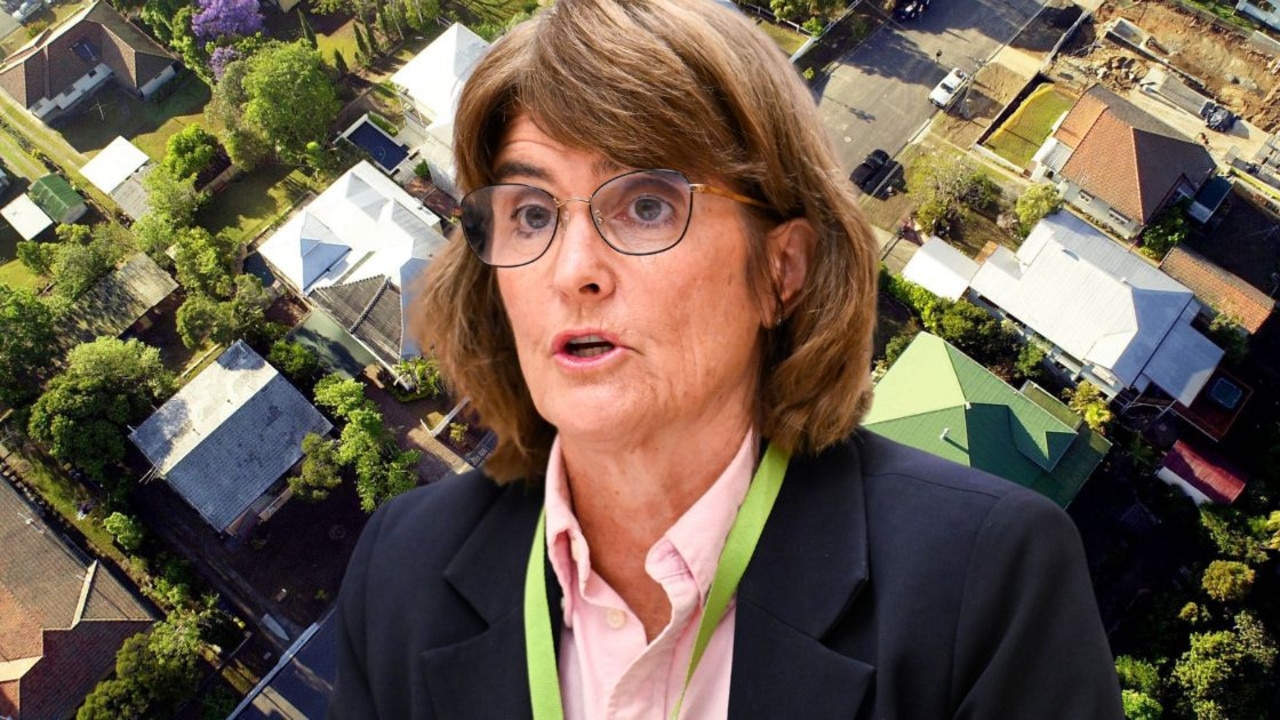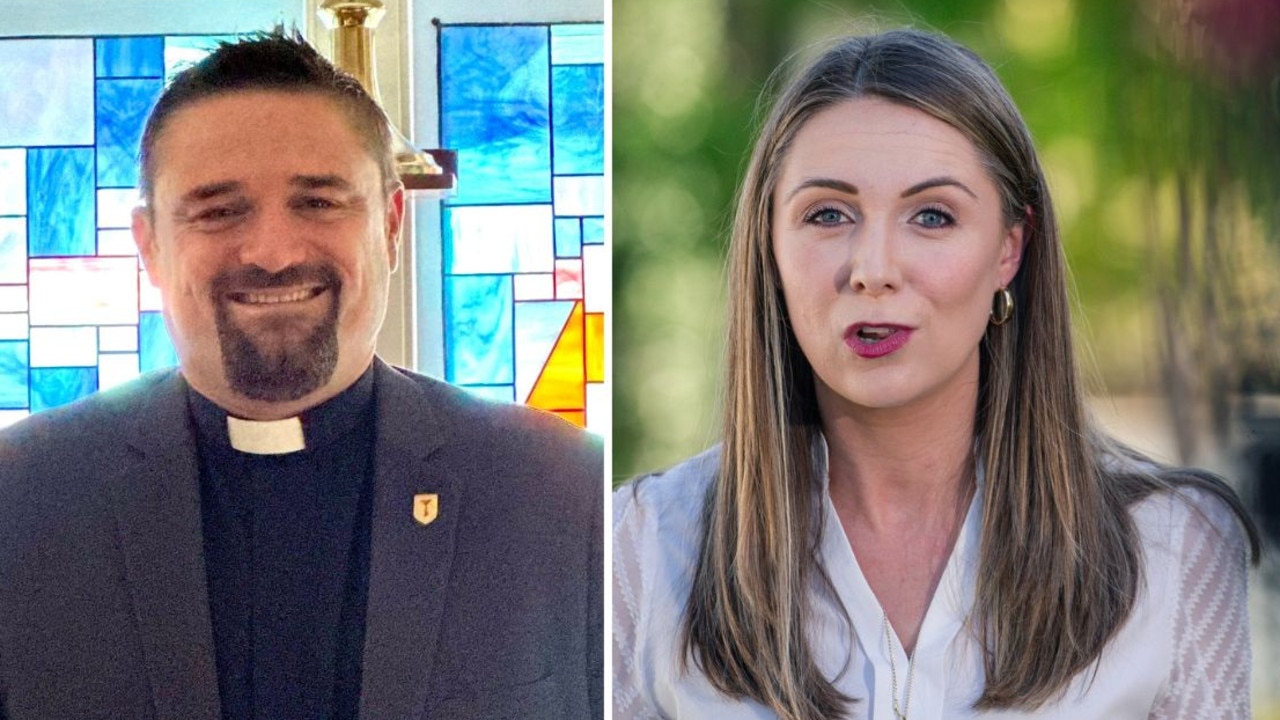No one in the Coalition is game to use the “c” word now
The fault lines carving up the Coalition are clearing a path to almost certain election defeat. And behind the turmoil is the “c” word politicians are struggling to say in public, writes Renee Viellaris.
CM Insight
Don't miss out on the headlines from CM Insight. Followed categories will be added to My News.
THERE’S a new “C” word that politicians are struggling to say in public. And the way the Morrison Government is heading, there’ll be another.
The first is coal. The second one will be Coalition. It’s ironic that the first four letters of the political union is the issue tearing them apart.
It was Scott Morrison, as treasurer in February 2017 who took a lump of black rock into Question Time and proudly wielded it, almost sparking convulsions from Greens MP Adam Bandt.
But in the past week, Morrison has stopped even using the “C” word, instead referring to coal as a “traditional type of energy source”. He has also appeared to have ruled out using taxpayers’ money to build a new high-efficiency coal-fired generator in Queensland.
If there was an AA program for appreciating the “traditional energy source”, Morrison was this week at Step 1, admitting his Government was powerless over coal and support for it had become politically unmanageable.

Morrison is taking a calculated risk for the election and the Coalition. He believes supporting coal is poison outside of regional Queensland, parts of regional NSW and Western Australia. He will not sacrifice Liberal inner-city seats for Nationals MPs in central or north Queensland. Those southern inner-city seats include Kooyong, in Melbourne’s affluent east, which is held by Treasurer Josh Frydenberg.
He also knows Deputy Prime Minister Michael McCormack, referred to as Big Mac by Morrison this week, does not have the mettle to take him on, even if Nationals demand it. Big Mac? Some snigger. Try Junior Burger.
Morrison believes the six Queensland Nationals (Barry O’Sullivan, Michelle Landry, Keith Pitt, George Christensen, Ken O’Dowd and Llew O’Brien) who wrote to McCormack last week, asking for the Government to back-in its own policy for divestiture powers to break up the Queensland Government’s energy monopoly and provide support for a new power generator, will win their seats anyway.
Not so. It will be tight.

There’s also a disparaging view by some within the Coalition party room and among staff that some Queenslanders are backwards, anti-climate change, anti-women and anti-gay.
Trevor Evans, the LNP MP for Brisbane, Victorian Tim Wilson and Trent Zimmerman from NSW stoked those internal views this week.
They made fun of Nats pushing for a new coal power station, with Evans accusing them of being a “lonely minority that is whistling Dixie”, a saying born in the south of the US. It means they are being unrealistic.
Some Nationals were offended by the inference they were inbred dummies.
“Let me put my beer down and beat you with my banjo,” one joked.
Proponents of coal in the Morrison Government — including those outside of Queensland — view Morrison’s decision to stop talking up coal as ridiculous, especially for a Government that will have billions more dollars in its Budget because of the skyrocketing prices of thermal and metallurgical coal prices.

The Nationals, in particular, noticed the Prime Minister’s change in language and many think Morrison’s weasel words are the real misstep of the week.
They are now watching closely about what actions he will take in the lead-up to the May election.
The timing is important and may be one of the reasons why supporters of former deputy prime minister Barnaby Joyce want him back in the top job, and have wanted him to pull the leadership trigger in recent weeks.
Pure exasperation is the driver for marginal seat holders who are worried they will lose their seats. Some won’t get another chance to change their leader because they won’t be in the party room. They want a strong leader to take on Morrison on the things that matter to the Nationals.
And from Joyce’s perspective it is three-fold. He believes he has the right, as he was the elected deputy prime minister before scandals forced him to step down; that he needs to come back to save Nationals seats; and that his chances of coming back could be weakened after the next election if Queenslanders lose their seats.

Other Nationals are in an “anyone but Barnaby” camp. That group is not new. It emerged in the lead-up to the retirement of former Nationals leader Warren Truss in February 2016.
Since that time, the Labor Party, in Queensland, Victoria and at a federal level, has leapt to the Left. The once great Right within Labor has become emasculated by those campaigning within for greater social and economic equality.
Labor, with support from and bankrolled by the unions, is winning the public debate on most issues.
And in a matter of weeks, if the polls are correct, Bill Shorten will become Prime Minister. Australia will have a Labor government in The Lodge, in Queensland, in Victoria, in Western Australia, and in the Northern Territory.

It has sent Liberals soul-searching, especially as traditional Conservative voters in inner-city seats, who have been the beneficiaries of almost three decades of economic prosperity, booming property prices and significant infrastructure investment, are demanding action on climate change.
The Liberals have begun their inch to the left, to ease their gap to Labor.
The Nationals have not shifted and for them coal is a winner in their seats. Polling shows them that.
This is the political schism for the Coalition, the fault lines magnified by a likely election loss.
However, the Nationals believe the facts — maybe not sentiment — is on their side.
Coal is Australia’s biggest export, meaning Australia’s wealth is directly linked to resources.
And this is one of the reasons why the Coalition needs to be in couples therapy.
“This is a sequel to the 2016 election,” one Nationals source tells Insight.
“The Libs were led by Crosby Textor types saying we must capture the middle and not be too conservative.
“The Nats just stuck to our guns and talked about coal, dams and live exports. Look what happened.”
What happened was the Nationals picked up one extra seat in the 2016 election and the Liberals, under Malcolm Turnbull, lost 15 seats.
For Joyce, he was vindicated, and he was fond of saying that the Coalition remained in power after the 2016 election because of the National Party.
Earlier this year, Home Affairs Minister Peter Dutton said, “In 2016, Malcolm ran the worst campaign in Liberal Party history and we ended up losing 15 seat and were left with a one-seat majority, which just made the Parliament unmanageable. We were paralysed.”
However, Dutton refused to explicitly back-in Resources Minister Matt Canavan this week, who told this newspaper that Joyce was right to publicly call for a coal-fired power station.

“We’ve got taxpayers’ money to spend, the question is whether the Federal Government should be building a coal-fired power station. I don’t agree with that. I don’t think we should be,” Dutton told 2GB radio.
“You have got power stations now that will be asking for taxpayers’ money for upgrades. The question is whether people want to pay more taxes or whether you are going to use taxpayer money instead of building that road or that new tunnel.
“I’m not hung up about one sector or another. Let’s call all of the facts out. There is no magic bullet here. That is the reality.”
Morrison says he will not pick winners but as some Nationals — and regional Liberals point out — he already has.
Snowy Hydro 2.0 is using taxpayers’ money to dramatically expand.
He picked a winner and it’s renewables, which are already getting subsidies.

The complication in Queensland is that its politicians run under the banner of the LNP but in Canberra they sit in their respective Liberal or National parties.
The Nationals are becoming more unhappy about their political marriage (and, as Joyce pointed out this week, a political union in Canberra was not the written rule).
Former Queensland senator Ron Boswell wrote in The Australian yesterday that, “an anything but coal” energy policy would harm regional Australia. “It would harm living standards because it will price energy-intensive food manufacturing and minerals processing out of global markets,” he wrote.
“Don’t forget that two-thirds of Australian exports are generated in the bush.
“In Coalition terms, an anything but coal approach would also mean that the spirit of compromise is not being reciprocated.
“It would mean that technology neutrality in theory was OK, but technology neutrality in practice is not allowed.”
It is common sense.

Ironically, some believe that Turnbull would still have his job if Joyce kept his. Joyce kept his side from going rogue. And they didn’t, because he was rogue enough for them.
Turnbull was ying to Joyce’s yang.
In 2017, Joyce told The Courier-Mail he regularly shot down ideas from Turnbull that “wouldn’t fly” in regional Australia.
He also acknowledged many of his southern colleagues did not understand Queensland and urged them to “hump bananas for a weekend” if they wanted political insight.
Joyce declared the LNP needed to change at state and federal elections, because “the L is too big and the N is too small”.
Joyce hinted he was often the contrarian at a Cabinet table dominated by city slickers.
Asked what he brought to the table that was different, Joyce said, “It can be blunt and to the point where you can say, ‘mate that just won’t fly’. That’s not going to work for me — my base. That’s not going to work in regional areas.”
That’s the Joyce many in the Nationals want to see back.
But some are not sure the “best retail politician in the country” is back to his old self, or has spent enough time in political purgatory for his affair with staff member Vikki Campion.
However, many add that a Joyce “at 75 per cent is better than McCormack at 100 per cent”.
renee.viellaris@news.com.au


